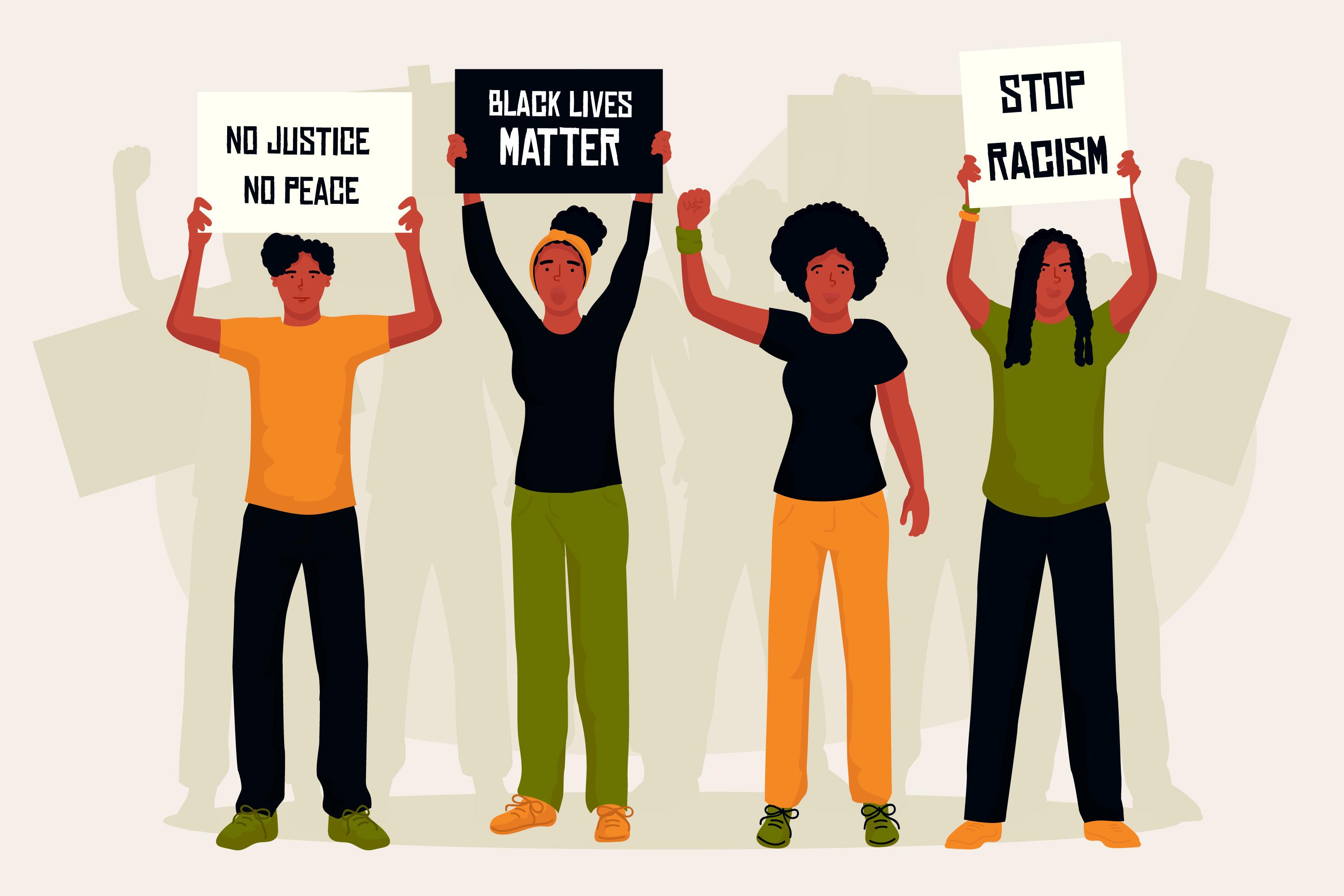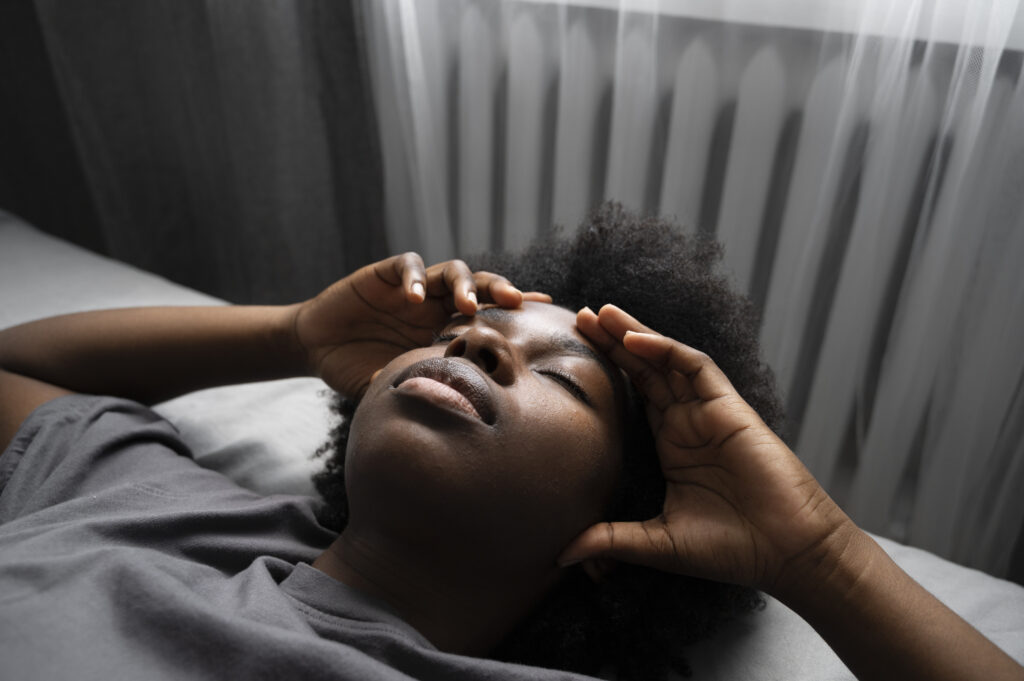Explore the profound effects of racism on mental health within the Black community, the historical roots, present challenges, and paths to resilience.

Black History Month stands as a symbol of Black pride and resilience. But it also casts light on another narrative running through the experience of Black Americans – one of deep-seated adversity due to systemic racism.
We take the time this month to reflect on the achievements and success of Black Americans and to honor those who paved the way for tremendous success for other black people who came after them. But to speak truth to the full experience of Black Americans, we must also reflect on the real gaps in equity faced by the Black community. That’s particularly true with regards to health and mental health.
“These disparities have been exacerbated by the uneven impacts of the COVID-pandemic, ongoing racism and discrimination, and police violence against and killings of Black people,” according to the Kaiser Family Foundation. “Moreover, the long history of inequitable health outcomes among Black people reflects the abuses faced during slavery, segregation, mass incarceration and their persistent legacies.”
Despite progress, the impact of historical injustices – from slavery to segregation, and the ongoing battle with racism – continues to affect the lives and mental wellbeing of Black Americans.
“America is supposed to be the land of the free and the home of the brave, but I don’t feel free, nor do I feel protected during these unprecedented times. I have two boys, and whenever they go out to the store, to meet a friend, etc., I worry and wonder what’s going to happen to them because of their race.”
Valerie Sterns, Mental Health America
Data reveals a harsh truth: Black individuals encounter more significant barriers to healthcare.
That issue was highlighted during the COVID-19 pandemic when Black people faced a disproportionately higher risk of hospitalization and death compared to their White counterparts. Moreover, those effects of COVID-19 may lead to widening disparities in health going forward, according to the Kaiser Family Foundation.
Yale Child Study Center says that repercussions of racism begin even before birth.
“The stress of racism experienced by Black mothers has been linked to low birthweight babies, which puts those children at greater risk for developing depression and other child mental health issues.”
These disparities serve as a grim reminder of the broader societal inequities that have persisted for generations. Which is why this Black History Month we want to lay out some statistics in hopes of sparking a conversation about how important it is to close the gap.
These numbers may hit close to home. We hope that that these numbers will also show you that you are not alone.
Based on evidence from the U.S. Department of Health & Human Services Office of Minority Health:
While much of what needs to happen to fix these gaps may be at an institutional level, remember there is an impact you and your family can have in your own community.
It might look like having a conversation with a friend, family member or trusted adult about how you’re feeling. Or maybe checking on a friend you’re worried about. If you’re not sure where to start, that’s okay too. Check some of our other resources to help you get thinking about your mental wellbeing.
It’s important to know having these conversations isn’t just about mental wellbeing — it may also be crucial to your overall health.
“Chronic exposure to the stress of racism and discrimination is linked to rapid biological aging and poorer health outcomes for Black people,” according to Nature Mental Health. “This exposure to police violence has been found to have negative mental health outcomes for Black people. Black youth have also been disproportionately affected by gun violence, which can adversely affect the mental health and well-being of children.”
Keanan Joyner, an Assistant Professor of Psychology at the University of California, Berkeley, leads a research lab that focuses on the causes of drug and alcohol abuse and behavioral disorders, particularly among minority and low-income groups.
“As Black people across the country try to cope with the consequences of the legacy of systemic racism that continues to affect them and their loved ones, we’re constantly bombarded with reminders of the broken world we live in. Black people everywhere learn to live with the continual challenge of living in a country not designed for their thriving. The toll on Black mental health is substantial.”
Keanan Joyner, an Assistant Professor of Psychology at the University of California, Berkeley

Understanding how we got here is vital. Dr. Barbara Robles-Ramamurthy, an expert in child psychiatry, offers insight into the lasting effects of racism that begin to affect Black children’s self-perception and mental health at a very young age. She explains that the relentless wave of racism can lead Black children to question their self-worth, their beauty, and their place in the world.
“Internalized racism — the beliefs and value systems affected by racism that guide our everyday behavior — is so pervasive that at a very young age, Black children begin to question their beauty, strength, and sense of belonging,” Robles-Ramamurthy says. “This is not because Black children are inherently different but because of how other people and systems treat them.”
Robles-Ramamurthy doesn’t stop there. She points out that the impact of racist policies, like segregated schools and neighborhoods, have long-lasting consequences that continue to marginalize and harm Black communities.
The Civil Rights movement and school desegregation may appear to be history, especially when we discuss them during Black History Month, but the repercussions are still very much felt today, Robles-Ramamurthy says.
“Even though decades have passed since the Civil Rights movement and school desegregation, we know that our actions have not been sufficient to undo the harms created by racist policies that still harm many communities.”
Dr. Barbara Robles-Ramamurthy, an expert in child psychiatry
Let’s keep it real: the stuff we’ve talked about is heavy. But it’s also reality. And sometimes the weight of it might feel like carrying around extra weight.
But guess what? We’ve got the tools to lighten that load. It’s not just about knowing what’s up with the past and how it’s still impacting with the present. It’s also about how each generation can step forward and make mental health and wellbeing a focus.
First, check out some of our favorite mental health gems for teens your age. We’ve also got a deep dive on the state of mental health for black teens like you that includes some tips about how you can help manage your feelings.
We also encourage you to check some great organizations working specifically on mental health for black teens. Like Black Emotional and Mental Health Collective (BEAM) and The Steve Fund. You can find info about them and lots more organizations providing culturally sensitive mental health resources for black youth by checking out our ‘Mental Health Support for Black Teens‘ resource.
Disclaimer: This website offers general information and is not a substitute for professional advice. We are not clinicians or trained professionals; this information should not replace seeking help from a qualified healthcare provider. Please consult a healthcare provider for personalized guidance.
Image by Freepik